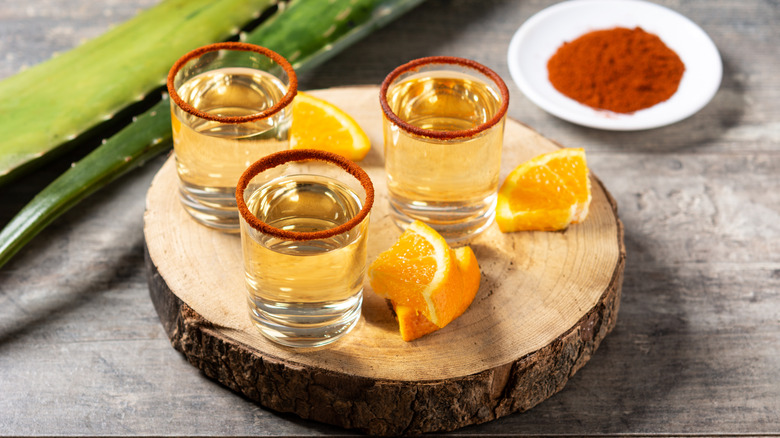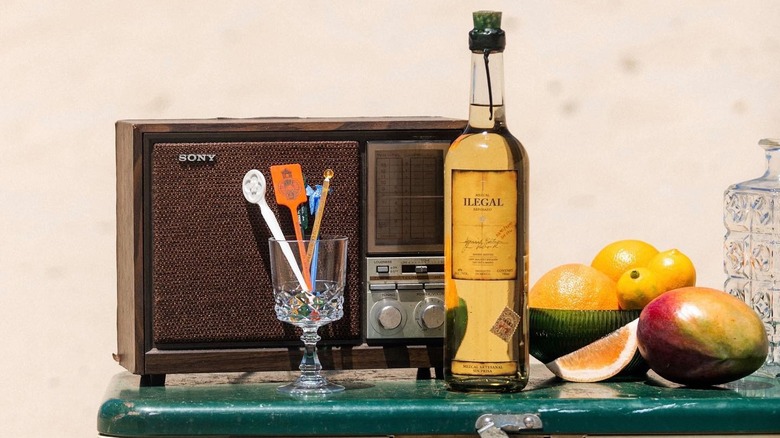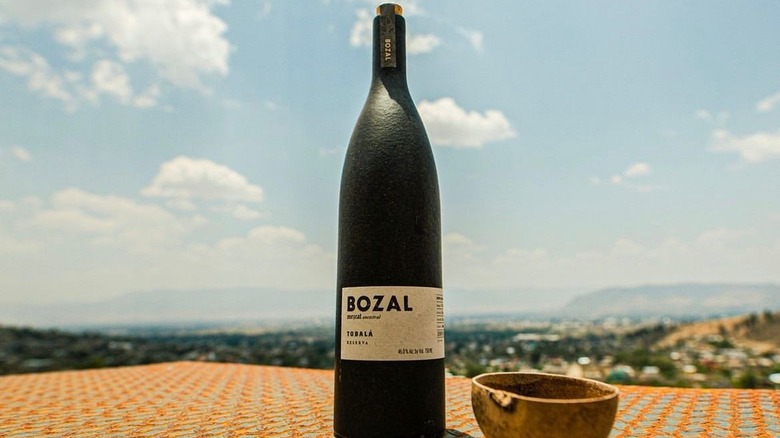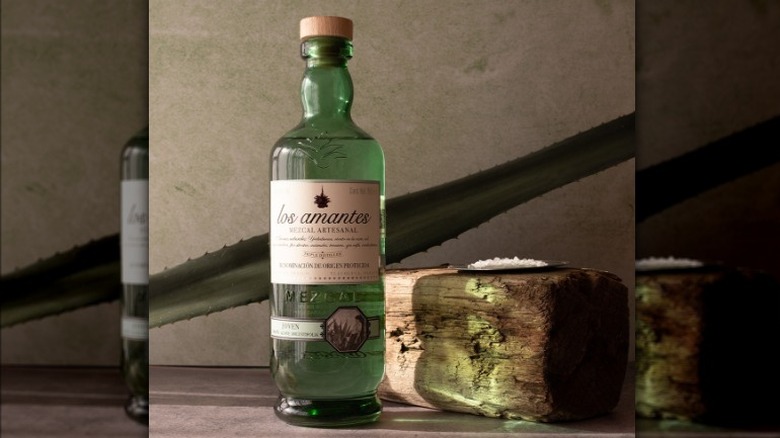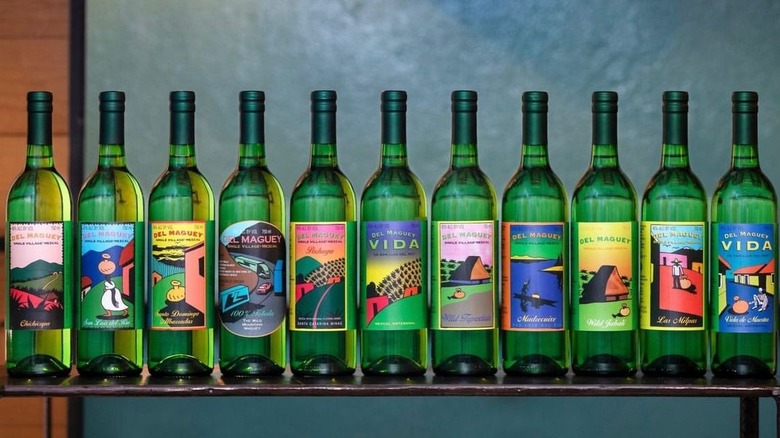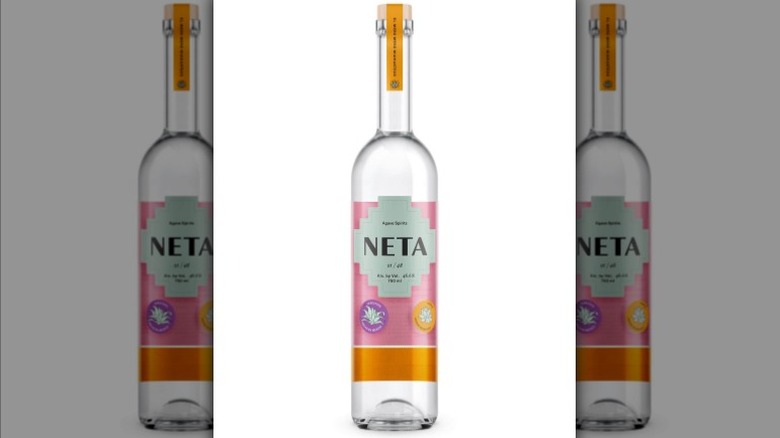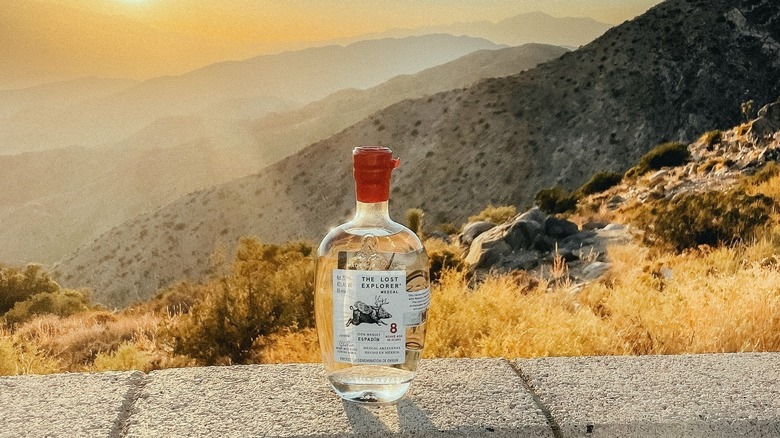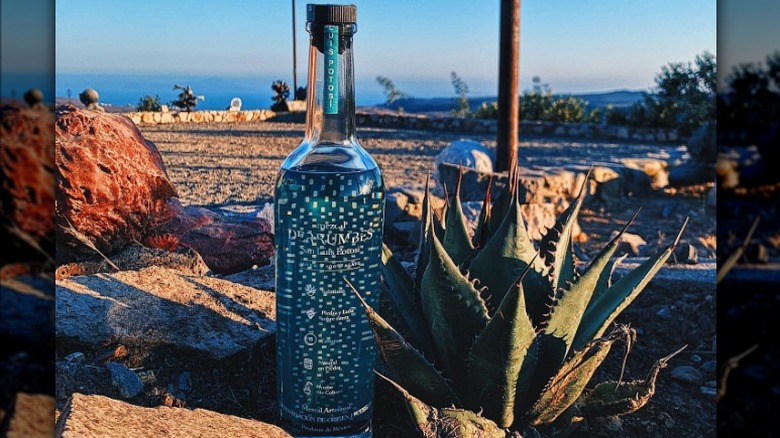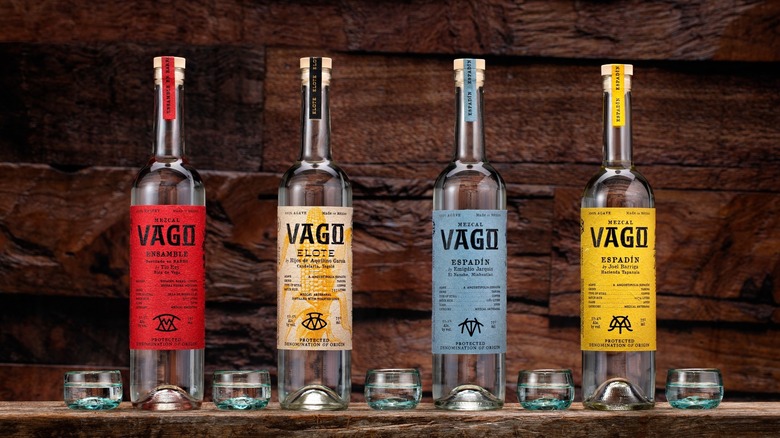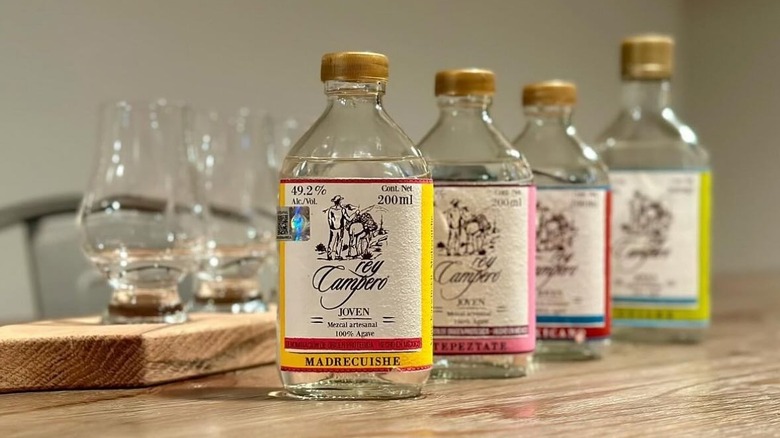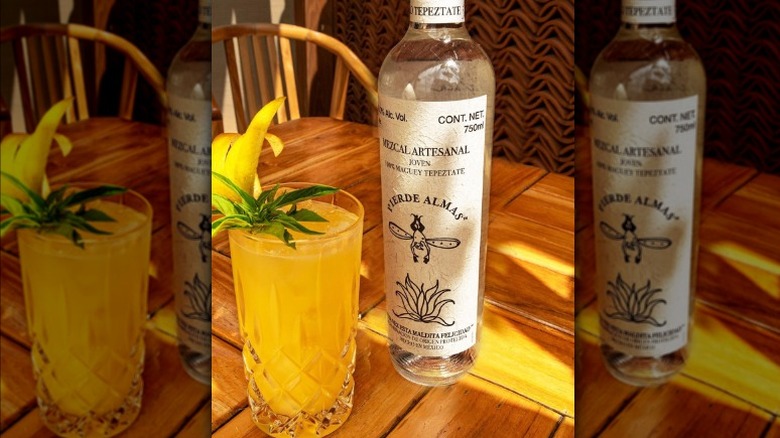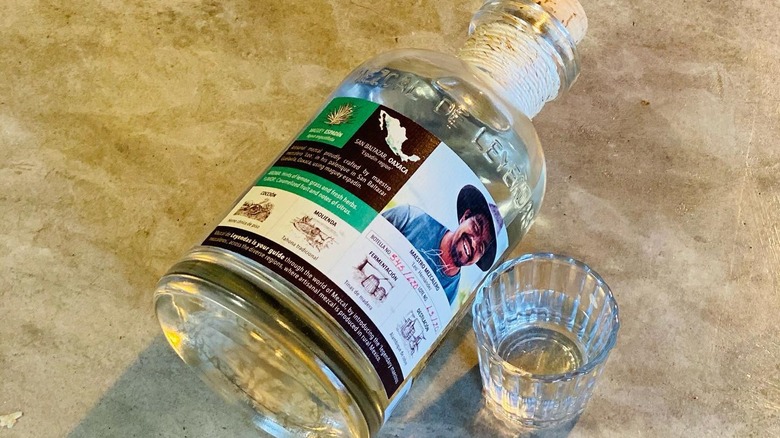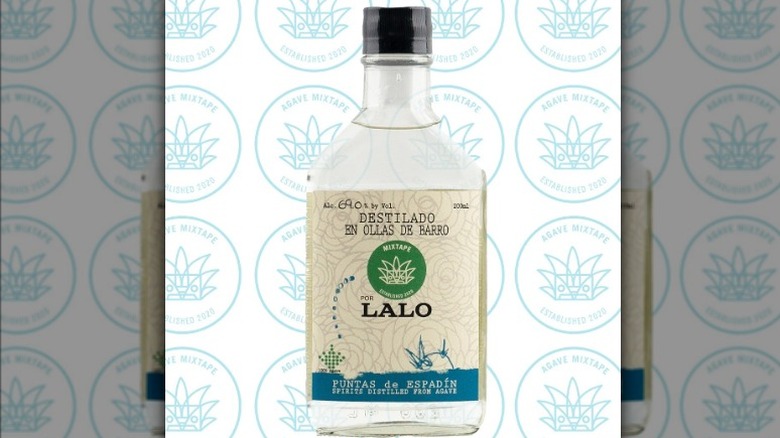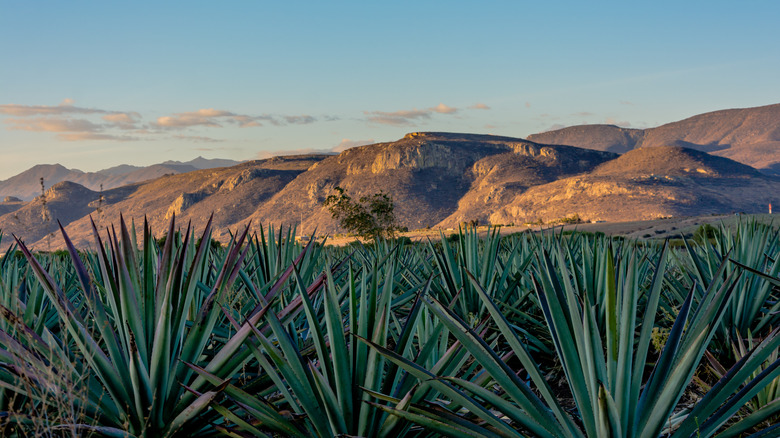12 Top Mezcal Brands, Ranked
The roots of mezcal dig deep into Mexican culture. The agave plant, the source of this beloved spirit, was once revered as a gift of divine origin by ancient Mesoamericans, its use dating back thousands of years. Today, maestro mezcaleros (master distillers) meticulously run their palenques (distilleries) using techniques passed down through generations. From nurturing the agave plants to cooking the hearts (piñas), crushing and fermenting the pulp, and ultimately distilling the juices, they craft the uniquely complex, smoky, and vegetal spirit into the jovens, reposados, and añejos mezcals that have captivated palates worldwide.
Traditionally, the term "mezcal" encompassed various spirits distilled from agave, including tequila and raicilla. In the mid-'90s, however, mezcal received its own International Denomination of Origin. Since then, governing bodies have emerged, establishing regulations to govern production methods and designate mezcal-producing regions. While these regulations have sparked debates, they have undoubtedly played a pivotal role in propelling mezcal's popularity, with global sales surpassing $920 million in 2022, per Fortune Business Insights.
Given the rich tradition surrounding this spirit, navigating the vast array of options can be daunting. With this in mind, we set out to rank 12 of the top mezcal brands in the market, carefully considering the adherence to traditional practice and unique characteristics each brought to the table, which we provide more detail on towards the end.
12. Ilegal
The story of Ilegal begins not in Mexico but in the city of Antigua, Guatemala, where founder John Rexer had a bar called Café No Sé. He started to bring in mezcal from a few villages in Oaxaca around 2004, which became a quick success. A couple of years later, he created his own brand of mezcal to supply the bar, calling it "Ilegal" to honor the not-entirely-legal operation. These days, it is distributed across the United States, as well as Germany, Italy, and the UK, legally, of course.
Ilegal works with fourth-generation maestros mezcaleros in Santiago Matatlán, Oaxaca, who harvest 100% Espadín agave (Angustifolia Has) and roast the plants in an earthen pit lined with river stones. The mash ferments for seven to 10 days, and the distilled spirit can go straight to the bottle to become Ilegal Joven (with eucalyptus and mineral aromas, excellent for cocktails), or it can be aged in barrels to create Ilegal Reposado or Añejo.
Ilegal Reposado is aged for six months in American oak barrels and boasts notes of clove, butterscotch, and vanilla, while Ilegal Añejo is aged for 13 months and offers aromas of maple and clove, as well as notes of dark chocolate and sweet agave on the palate. Overall, Ilegal mezcals have a fine quality without achieving great complexity, a feature that mezcal aficionados look for.
11. Bozal
Bozal is a self-described "untamed" brand, which refers to not only the wild agave grown in the states of Oaxaca, Guerrero, and Durango but also the traditions upheld by its maestros mezcaleros. The maestros harvest fully grown agave plants using tools like machetes, and separate the cores from the leaves so that they can cook them in earthen pit ovens.
The cooked hearts are mashed in a stone tahona, which is a traditional wheel turned by a horse or a donkey, and the resulting mash is allowed to ferment naturally in clay pots or wood tanks. The brand's Artisanal mezcals are distilled twice, while its Reserva mezcals are distilled in clay pots.
Bozal's expressions include single-agave mezcals like a smoky Cenizo, a sweet Cuishe, and a peppery, mineral Tepeztate, as well as an ensamble (blend of Espadín, Barril, and Mexicano). Bozal also produces a unique line called Sacrificio, featuring mezcals infused with ingredients like Ibérico ham and lamb during the final distillation process.
Recipes for some of these mezcals have been in the families of maestros mezcaleros for generations. Bozal's 100% artisanal process makes it an excellent contender in its category, although some of its bottles are pricier and not as accessible to all drinkers.
10. Los Amantes
According to legend, it was the goddess Mayahuel who graced us, mortals, with the agave plant. Mayahuel and Quetzalcóatl, the Aztec god of the sun, fell in love and decided to escape together. The couple took the shape of a tree to hide from Mayahuel's protective grandmother, Tzitzimitl, but she found them, split the tree in half, and devoured the parts that her granddaughter had made up.
Distraught, Quetzalcoátl collected the remains and buried them, and the first agave plant grew from these remains. This legend of "Los amantes" (the lovers) inspired this brand's name, and its origins can be traced back to the early 2000s in Tlacolula de Matamoros, in Oaxaca's Central Valleys, making it a pioneer in the world of premium mezcal.
Los Amantes uses 100% Espadín agave, and it produces three expressions. Los Amantes Joven is a triple-distilled mezcal with fruity, slightly smokey aromas and notes of citrus and cooked agave. Its Reposado shows aromas of wood and coffee, as well as notes of wood on the palate, while its Añejo, aged for over a year in French oak barrels, is an aromatic spirit with notes of vanilla, coffee, and caramel. Although some drinkers may like to see more agave varietals in Los Amantes' offerings, these three labels are undoubtedly fantastic.
9. Del Maguey
Since 1995, Del Maguey has been producing excellent mezcals with several families from Santa Catarina Minas, Oaxaca. The brand works with 10 types of agave (like Arroqueño, Jabalí, Barril, and Tobalá) and produces a variety of expressions, each of which has a name and last name: They can be traced to the maestro mezcalero who produced it and their villages.
To strengthen its commitment to its producers, the brand has implemented several initiatives to support the maestros and their communities, such as reforestation and an apiculture program. Del Maguey's Vino de Mezcal series features exquisitely made mezcals, like the Tepextate Salvaje, made with wild Tepextate from Santa Maria Albarradas and boasting sweet aromas of banana caramel and notes of passion fruit and marzipan.
In the brand's Core Village Series, you will find mezcals that speak of a region, like the Las Milpas. It's made with Espadín, and it has notes of chalk and tropical fruits on the nose, and citrus, lavender, and pea sprouts on the palate. For those with a sweeter tooth, its Crema de Mezcal is not to be missed: It's a combination of agave syrup and mezcal that works perfectly as a digestif, thanks to its notes of vanilla, pear, and almonds on the nose, and pineapple and sweet orange on the palate. Del Maguey's three-decade-long history makes it one of the most recognizable brands in the market, and it sells one of the most extensive collections out there.
8. Neta
Over the last decade or so, Neta has been working with several families of maestros mezcaleros in Miahuatlán and the Central Valleys of Oaxaca. These recipes have been passed down from one generation to the next. Neta has expanded the regions and palenques (distilleries) it works with, and the brand produces mezcal with an assortment of agaves, from the popular Espadín to rarer species like Bicuixe and Verde, as well as a variety of terroirs, resulting in interesting and surprising labels that it releases in smaller batches.
Over the past few years, Neta has released several expressions, including 528 bottles of Tequilana in the winter of 2023. As you may have guessed (because of the name), Tequilana agave is usually used to produce tequila, which makes this batch quite interesting. Some varieties, like the Cuixe Verde had just 48 bottles released at the end of 2023. As the brand explained to Mezcalistas, the idea behind small batches is simple: To allow the maestros to do what they want to do with the best agave they have available.
Although Neta only landed in the United States in 2019, it has been getting pretty strong reviews from spirit aficionados, and it is available for purchase through select sellers in the United States and Europe (plus a cluster of sellers in its country of origin).
7. The Lost Explorer
The Lost Explorer's three expressions (Espadín, Tobalá, and Salmiana) are produced by Fortino Ramos, a first-generation maestro with 40 years of experience whose palenque is located in Oaxaca's Valles Centrales region. The brand's three varietals are produced with wild agave, and each plant is hand-harvested by Fortino and his team. Don Fortino and his team cook the agave in earthen ovens lined with volcanic rocks, mill the cooked agave, and allow the mash to ferment naturally in open-air barrels. Finally, the liquid is twice-distilled in copper stills.
Don Fortino is now passing on his knowledge and wisdom to his young daughter, Xitlali, who is in (years-long) training to become a maestra mezcalera, something that is still quite new in the male-dominated world of mezcal. As part of its commitment to the region, the brand plants three new wild agaves for each harvested plant. It has also partnered with Isla Urbana, a rainwater harvesting NGO that installs systems in communities with limited access to clean water.
While the brand might be relatively new to the landscape, it sure has made waves, winning a slew of awards ─ in fact, it was the most awarded mezcal of 2021.
6. Derrumbes
This Derrumbes brand draws from most of Mexico's richly diverse mezcal-producing regions, working with producers in the states of Oaxaca, Michoacán, San Luis Potosí, Zacatecas, Tamaulipas, and Durango. As a result, each of the six bottles represents the state, the unique region and terroir it comes from, and the maestro mezcalero's knowledge and traditions.
Take the San Luis Potosí expression as an example. San Luis is one of the less represented states in the mezcal landscape, and this bottle shows how a wild Salmiana is produced in the Charcas region, in the high plateaus of the state. The agave is cooked in a masonry oven with a stone pit, then mashed in a tahona, and distilled in copper pot stills. This unique process is the work of Juan Manuel Pérez, who creates a herbaceous, floral spirit.
Another exquisite example is Derrumbes Zacatecas, made with 100% Tequilana Weber. Maestro Jaime Bañuelos harvests this blue agave in Huitzila, Zacatecas, near the canyon that divides the village from the valley of Tequila in Jalisco. Jaime and his family produce mezcal in an artisanal way, using an underground pit, a tahona, and copper pot stills. Master or Malt calls it "a smoky treat." Since the brand works with small producers, each bottle from Derrumbes becomes more exclusive and unique, explains Mezcal Reviews, placing the brand on the higher positions of this list.
5. Vago
Vago's origin story is one of love and mezcal. It began with the founder embarking on a trip to Oaxaca, where he fell in love with the culture, the country, and a woman whose father just happened to be a mezcalero. Captivated by the deep-rooted traditions and the tight-knit community surrounding mezcal, he was inspired to create a brand that honored these values.
Every detail matters to Vago, from the meticulous selection of agave species to the nuances of the production process. Each bottle proudly bears the story of its origin — the maestro mezcalero, the pueblo where it was made, the agave variety used, and the unique details of its crafting. This commitment to transparency empowers consumers, giving them the knowledge they need to appreciate and seek out exceptional mezcal experiences.
Vago's lineup proudly showcases joven (young) mezcals, staying true to the time-honored techniques cherished across generations. Despite this dedication to tradition, Vago embraces diversity and individuality by collaborating with four distinct mezcaleros, among them the founder's father-in-law. A testament to this diversity lies in the contrasting profiles of two standout selections in the Vago repertoire: the authentically crafted Espadin en Barro, distilled in clay pots, and the innovative Vago Elote, infused with the rich essence of toasted corn.
4. Rey Campero
Candelaria Yegolé, a small village in the foothills of Oaxaca's Sierra Sur, is home to the Sánchez family, who produce the mezcals for Rey Campero and its sister brand Herencia de Sánchez. The family has been producing mezcal for four generations, and they grow more than 10 agave species in this area, including Mexicano, Espadín, Cuishe, and Sierra Negra. The brand is also committed to wild agave preservation, and it installed a nursery in 2013 for reforestation.
Over the past years, the company has planted Mexicano, Tobalá, Cuishe, and Tepextate seedlings. The Sánchez family sees mezcal production as a ritual. The maestros cook the agave in a conical underground stone pit for four or five days and then mash the cooked agave in a stone tahona that is pulled by a mule or horse. Then, the mash is naturally fermented in pine wood vats, and distillation takes place twice in copper stills.
Rey Campero produces single-agave expressions, like an intense Tepextate and an earthy mineral Cuishe, as well as other unique labels. Its Elixir Frutal is ideal for the holidays, as it is distilled with fruits like plums and guava that are part of a traditional Mexican Christmas punch. The highly regarded brand has a presence in Mexico, as well as the United States, and several European countries. Its wide array of expressions represent Oaxaca proudly.
3. Mezcal Pierde Almas
The Mezcal Pierde Almas brand was born from a collaboration between Oaxaca's Sánchez family and American artist Jonathan Barbieri. The bottles, with their gorgeous hand-painted labels, make a stunning first impression, but there is much more to love than what meets the eye. The Sánchez clan is now led by fourth and fifth-generation mezcaleros, and their palenque is located in San Baltazar Chichicapam, Oaxaca. The family grows wild agave varietals like Tobalá, Mexicano, and Tobasiche, producing artisanal mezcals, each batch fine and unique.
Its Tobalá, for example, is made from a wild agave that takes 12 years to mature and shows the plant's strong, herbal tones. The taste, according to Mezcal Reviews, is sweet and floral. Pierde Almas Conejo is the way to go for those who want to try a variation on a traditional Pechuga. It's made with Espadín agave, and it is triple-distilled, using a wild cotton tail rabbit on the third distillation. The result is a spirit with notes of orchard fruit, tarragon, and rabbit.
The brand has a Wild Agave Reforestation program, committed to planting wild agaves in areas where they have been over-harvested. It has been part of Diageo since 2018, and has become more widely available to consumers but has maintained its unwavering quality.
2. Mezcal de Leyendas
The story of Mezcal de Leyendas takes us back to 2005 when one of its founders traveled to Oaxaca and fell in love with mezcal. He and his team decided to open La Botica, one of Mexico City's first mezcalerías. The brand's pioneering spirit led it to explore agave fields beyond Oaxaca, making the most of mezcal's Appellation of Origin as the largest in the world. It even dared to take a step beyond, journeying to regions that produced great mezcal but couldn't legally make it, like Puebla before it earned its Mezcal Denomination of Origin.
The brand plays with some not-so-common agaves, such as Cenizo, Ancho, and Verde, for its core line. Its Ancho, produced in Guerrero, is the work of Maestro Oscar Obregón, a fourth-generation mezcalero with over 15 years of experience from Guerrero's Sierra Madre Occidental. The liquid boasts aromas of cucumber, melon rind, and tropical fruits, and notes of green plantain, papaya, and black pepper on the palate. You'll find some unique creations in its limited edition line, like a Coyote from Oaxaca. It has notes of peat, hard candy, and earthy, toasted agave flavors, and it's the result of maestro Angel Cruz's decade of experience, as well as the Sierra Madre Sur's terroir.
Nearly two decades after its inception, the brand's adventurous soul and fantastic expressions make it one of the best options in the mezcal category, inviting drinkers to explore new regions and flavor profiles.
1. Lalocura
This brand is produced in Santa Catalina de Minas, Oaxaca. Love for Lalocura began as a word-to-mouth phenomenon among mezcal lovers in Mexico and abroad. Maestro mezcalero Eduardo Ángeles is a fourth-generation master and had been working for his family's brand for years before he started at Lalocura in 2014.
Eduardo and his team use agaves like Espadín, Tobasiche, and Cuishe to produce bottles that let each plant's traits shine. Its Tobasiche is harvested between the ages of 15 and 18 and cooked for five days in a pre-Hispanic oven, then mashed in wooden vats and allowed to ferment for nine days. According to Mezcal Reviews, two distillations in clay pots results in a sweeter spirit than other mezcals made with this plant, as it is made in the winter when the plant's sugars are most concentrated. Another interesting example is its San Martinero (also known as Barril), harvested at 15 years, cooked for five days, and allowed to ferment for 12 days. It has notes of clay, chocolate, and cherries, and reviewers call it one of the most complex and unique mezcals out there.
Eduardo distributed his product to a few venues in Mexico for years and only recently started selling his product at a more mainstream level. Nowadays, the brand maintains its prestige and legendary status among mezcal aficionados, who visit Lalo's palenque to witness the magic. A strong commitment to both tradition and the future of production results in authentic, incomparable bottles.
Methodology
Quite a bit went into crafting these rankings. First up, while there are multitudes of amazing hand-crafted mezcals out there, we kept our focus on brands that have a fairly wide distribution. All of the mezcals on our list can either be found at larger markets and liquor chains, or can be sampled at mezcal bars and specialty shops. In addition, many of the brands offer online ordering, especially if you live in the United States, and should be able to ship directly to your home.
We also considered methods of production and the diversity of the brand's offerings. While espadín is the most common type of agave, accounting for more than 90% of mezcal production, there are around 30 others that can be used as well, each offering up distinct flavors. In addition, each palenque has its own unique style that affects the taste, too. Our favorite brands showcase the diversity and breadth of flavor that mezcal can offer, and have packaging that highlights the individual mezcaleros doing the work. We also took into account online reviews, eager to share what fellow mezcal enthusiasts had to say.
